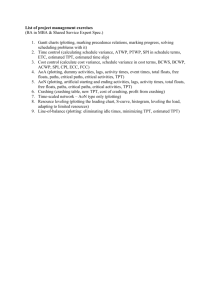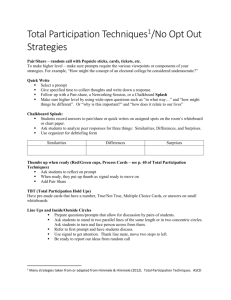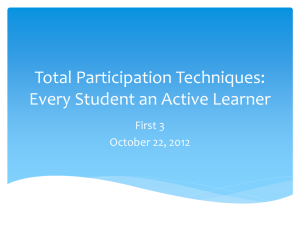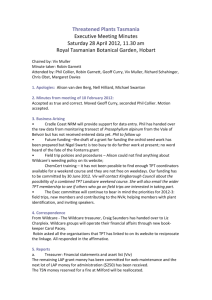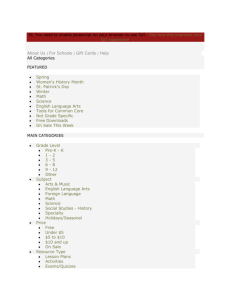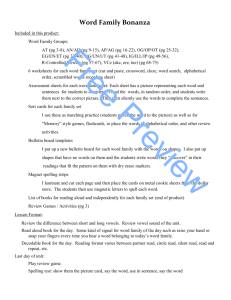Project Partners Contact
advertisement
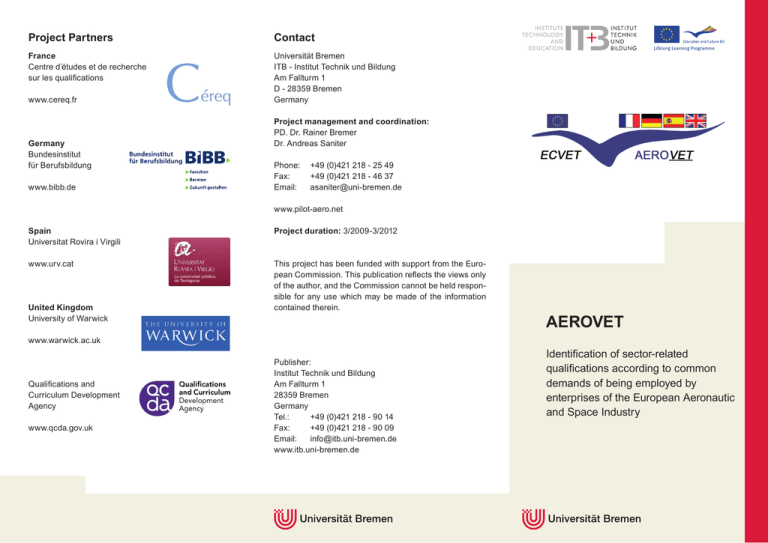
Project Partners Contact France Centre d’études et de recherche sur les qualifications Universität Bremen ITB - Institut Technik und Bildung Am Fallturm 1 D - 28359 Bremen Germany www.cereq.fr Germany Bundesinstitut für Berufsbildung www.bibb.de Project management and coordination: PD. Dr. Rainer Bremer Dr. Andreas Saniter Phone: +49 (0)421 218 - 25 49 Fax: +49 (0)421 218 - 46 37 Email: asaniter@uni-bremen.de www.pilot-aero.net Spain Universitat Rovira i Virgili Project duration: 3/2009-3/2012 www.urv.cat This project has been funded with support from the European Commission. This publication reflects the views only of the author, and the Commission cannot be held responsible for any use which may be made of the information contained therein. United Kingdom University of Warwick AEROVET www.warwick.ac.uk Qualifications and Curriculum Development Agency www.qcda.gov.uk Publisher: Institut Technik und Bildung Am Fallturm 1 28359 Bremen Germany Tel.: +49 (0)421 218 - 90 14 Fax: +49 (0)421 218 - 90 09 Email: info@itb.uni-bremen.de www.itb.uni-bremen.de Identification of sector-related qualifications according to common demands of being employed by enterprises of the European Aeronautic and Space Industry Main Idea The European Aircraft Industry is an outstanding example of an intensive transnational cooperation in production and maintenance – but not yet in apprenticeship. The main product of this project will be a grid derived from the demands of real work tasks (instead of curricula), which describes the units (designed to facilitate mobility), corresponding to the typical professional tasks in a transparent manner. This grid will be tested as an example in the already established mobility programme within the Airbus Company. In each involved country (Spain, UK, France, Germany) the units are set in relation to the national curricula. This leads to a valid basis for possible reorganisation of the (national or European) apprenticeship. All institutions involved in the project will publish a statement concerning European core profiles in the Aircraft Industry that should be understood as a recommendation for future practice. Description Interim Results ▪ Establishing the Typical Professional Tasks (TPT) that were identified and validated in our former project (AERONET) as the basis for units respecting the technical ECVET-Specifications. ▪ Appointment of the units to the respective [national] qualifications of the 4 participating countries. ▪ Determining the units that are part of transnational »Core Profiles«. ▪ Formulation of mobility units: mobility units are integrated parts of the respective TPT/unit. The decision, whether an apprentice has reached successfully the learning outcomes of a mobility unit, is marked by the trainer/teacher based on a qualitative assessment scheme with date, location and signature. ▪ Crediting the TPT/units based on their relative weight. ▪ We aim at establishing the following method of assessing: When all/almost all Learning Outcomes of the MU are reached by an apprentice he or she is in charge of a complete work process related to the respective TPT/unit. If successfully completed the credits for the whole TPT/ unit are allocated to the candidate. ▪ Establishing, testing and, if indicated, modification of the developed methods and grids within the Airbus intercultural exchange activities. ▪ A handbook that explains the purpose and the handling of the grids will be published. Typical Professional Tasks (TPT) A TPT describes a class of similar holistic working processes. Neither does it explain a chosen working place, nor is it reduced to skills, competences or knowledge. The skilled work of aircraft mechanics can be described in 11 Typical Professional Tasks (TPT) (above the dotted line) – 12 (below the dotted line) for the electricians. In the sketch the TPT that were found in all 4 countries are within the inner circle – they define the common core profile. Core tasks Optional tasks TPT 7 TPT 3 TPT 9 TPT 2 TPT 5 TPT 4 TPT 19 TPT 11 TPT 6 TPT 1 TPT 10 TPT 8 TPT 17 TPT 12 TPT 14 TPT 22 TPT 20 TPT 15 TPT 21 TPT 16 TPT 18 TPT 13 The TPT fulfil the ECVET-Requirements for units, but they are: ▪ Maybe too large for mobility periods. ▪ Not automatically taught en bloc. ▪ Partly often taught not once but several times. ▪ Partly not teachable at schools. Solution: Mobility Units (MU) By Learning Station Analysis (LSA) we have determined coherent parts of the TPT (units) that do not lose their meaningfulness. Each TPT consists of several of these Mobility Units. Some of the MU are part of different TPT – but the essential learning outcome to gain is the one to be able to work on all relevant MU of an unit in context.

